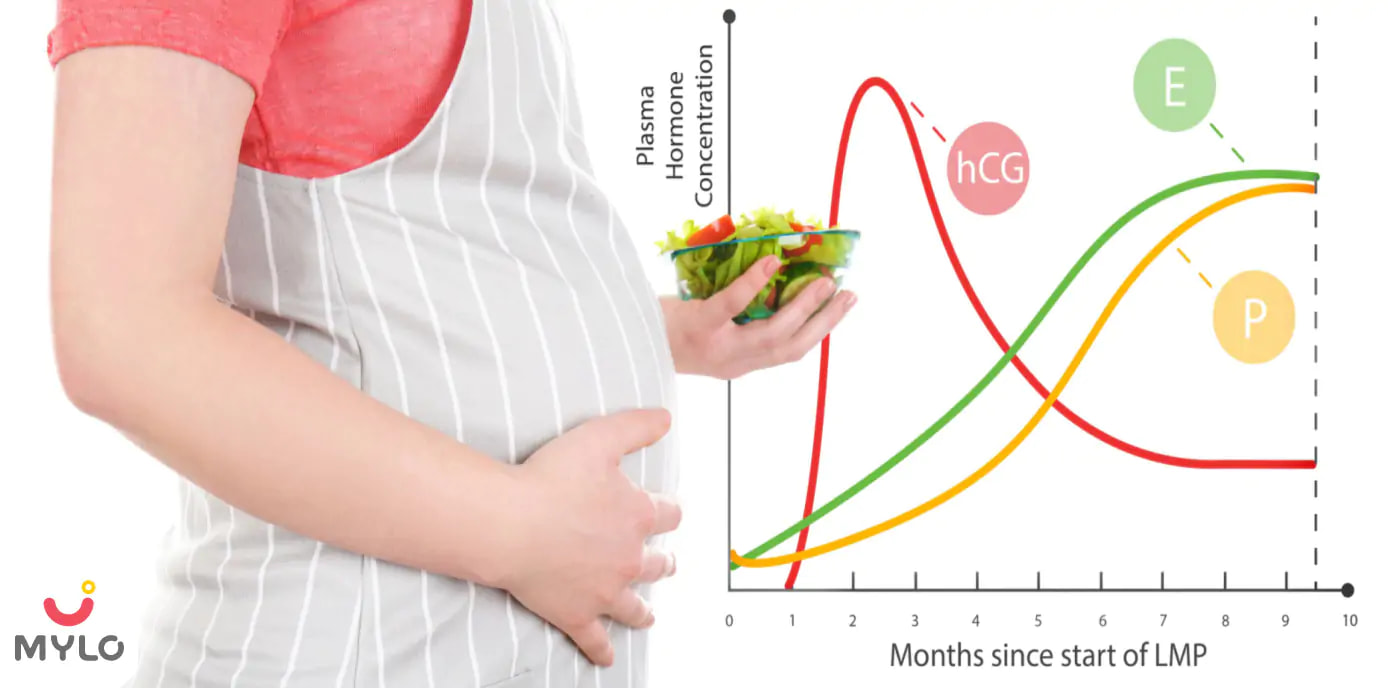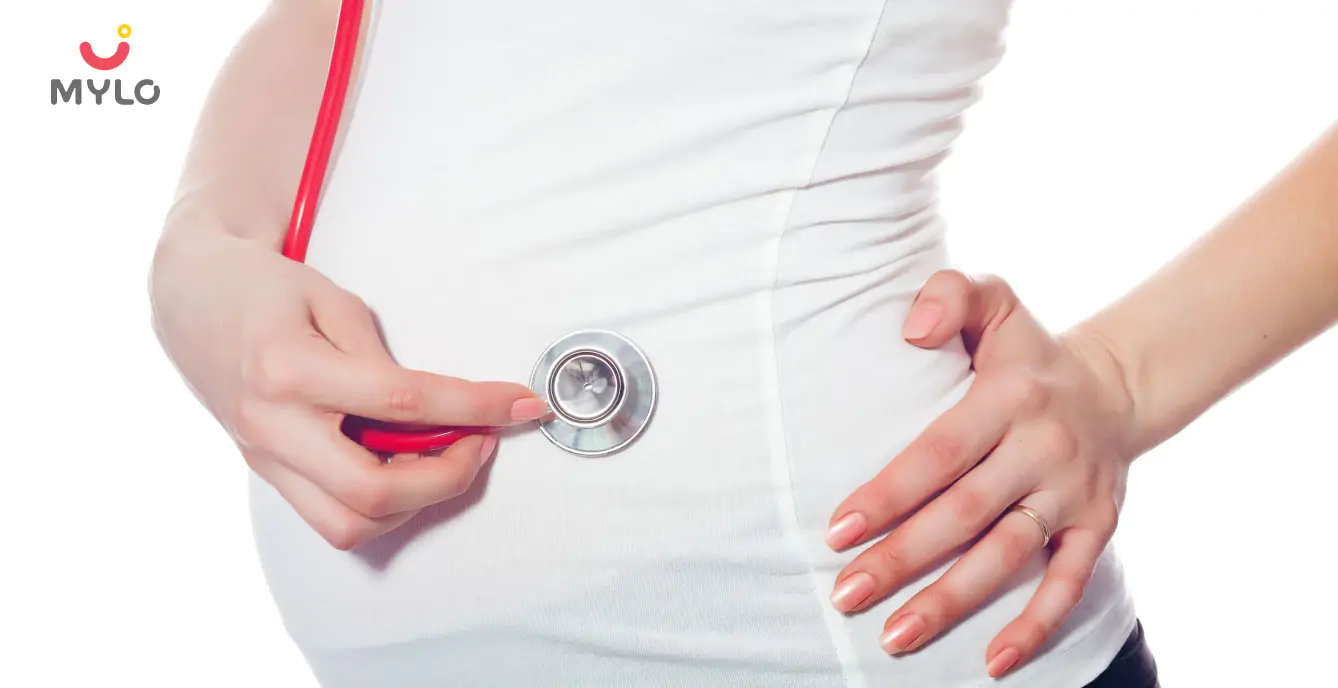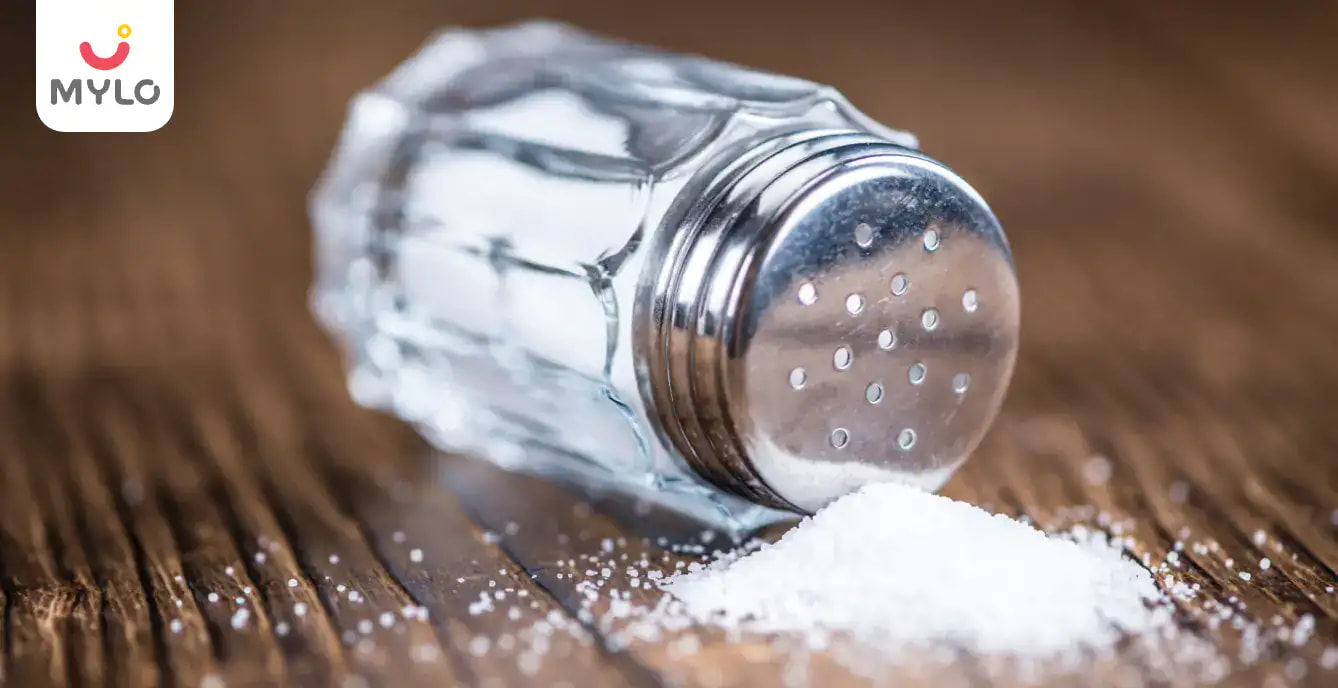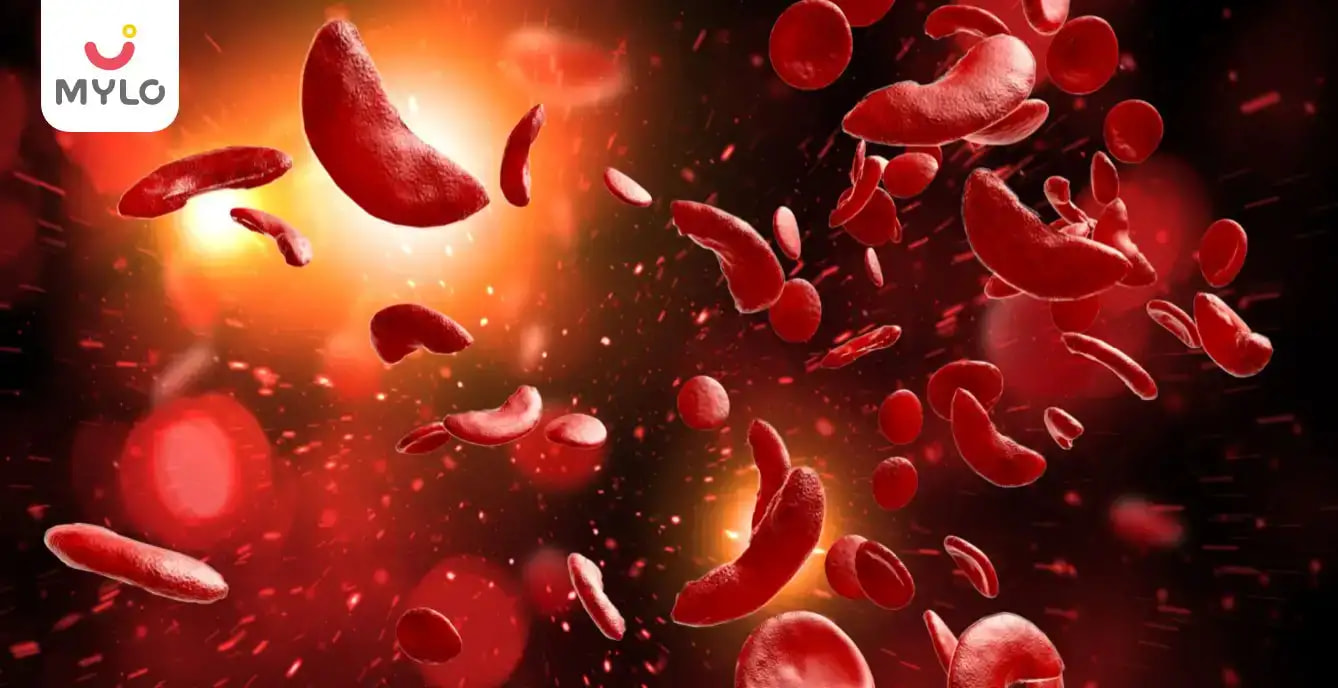Home

A Guide on How to Increase hCG Levels in Early Pregnancy
In this Article

A Guide on How to Increase hCG Levels in Early Pregnancy
Updated on 11 April 2024
Pregnancy is an exciting and life-changing experience, but it can also come with its fair share of concerns. One of these concerns is ensuring that your hCG levels are at a healthy level. hCG, or human chorionic gonadotropin, is a hormone that is produced during pregnancy and is responsible for maintaining the pregnancy. Low hCG levels can indicate a potential risk of miscarriage, while high levels can be a sign of a molar pregnancy. In this article, we will understand how to increase hCG levels in early pregnancy and ensure a healthy pregnancy.
What is hCG?
hCG stands for human chorionic gonadotropin, which is a hormone produced once an embryo is implanted in the uterus by the placenta. This hormone tells your body to produce more progesterone levels to prevent menstruation, and the uterine lining is protected. It is sometimes referred to as the "pregnancy hormone".
hCG levels can be detected through urine or blood tests, and the normal hCG level doubles every 72 hours during the first few weeks. But as the level gets higher, the time it takes to double can increase to about every 96 hours. High levels of hCG can also indicate miscalculation of pregnancy dating, molar pregnancy, or multiple pregnancies.
Normal Levels of hCG in Pregnancy
The standard varies for each woman, as every woman has a different body, and each body reacts differently to pregnancy. It also depends on the number of babies that you are having. According to research, the levels of hCG hormone can first be detected 11 days after conception through a blood test. They will reach their peak during the first 8 to 11 weeks. It starts to decline after the eleventh week of pregnancy.
An hCG level of less than five mIU/mL means that the woman is not pregnant. Levels above 25 mIU/mL mean that the woman is pregnant. The normal ranges for HCG levels are given below. However, you should remember that the level varies for each woman. So, consult your doctor to know if your level falls into the normal range.
Levels of hCG in pregnancy
|
3 weeks |
5 - 50 mlU/ml |
|
4 weeks |
5 - 426 mlU/ml |
|
5 weeks |
18 - 7,340 mlU/ml |
|
6 weeks |
1,080 - 56,500 mlU/ml |
|
7-8 weeks |
7,650 - 229,000 mlU/ml |
|
9-12 weeks |
25,700 - 288,000 mlU/ml |
|
13-16 weeks |
13,300 - 254,000 mlU/ml |
|
17-24 weeks |
4,060 - 165,400 mlU/ml |
|
25-40 weeks |
3,640 - 117,000 mlU/ml |
|
Not pregnant |
55 - 200 ng/ml |
You may also like: What Causes Low hCG Levels in Early Pregnancy?
How to Increase hCG Levels in Early Pregnancy?
Unfortunately, there isn’t a way to increase hCG levels in pregnancy. However, there are ways to naturally increase progesterone in the body that HCG tells your body to produce. Did you know that the placenta, responsible for providing nutrients and oxygen to the baby, doesn’t develop until weeks 12 to 14? Progesterone stimulates blood in the region for a healthy placenta to grow.
Below are some ways to naturally increase progesterone in the body, which will indirectly stimulate a healthy level of hCG in pregnancy:
1. Maintain a healthy body weight
Estrogen and progesterone balance each other out. However, when you have excess fat, the body produces more estrogen. The ovaries don’t know that excess estrogen is being created in the body, so they don’t compensate with more progesterone. Hence, it is important to maintain healthy body weight with an average fat percentage so that both hormones remain at stable levels.
2. Avoid intense exercise
Light to moderate exercise and movement are good during pregnancy. It benefits both the mother and the baby. However, when you over-exercise, the body produces cortisol, a stress hormone for long and high levels. Since the human body is not habitual of creating such high levels of cortisol, it compensates by converting progesterone into cortisol.
3. Reduce stress
When we are stressed, it increases the production of a stress hormone called cortisol. Since the body is not used to producing high cortisol levels, it compensates by converting progesterone into cortisol. Hence, it is important to reduce stress. You can engage in positive activities that make you happy and reduce stress, such as walking on the grass, reading, talking to a friend, etc. When you experience positive emotions, it sends signals to the body that it can resume normal progesterone levels and stop converting it into cortisol.
4. Medical intervention
In some cases, doctors may prescribe progesterone injections or medications to support healthy progesterone levels during pregnancy. This can help sustain the pregnancy when there's a greater risk of miscarriage. But only take progesterone supplements if they have been prescribed by your gynecologist.
The Bottomline
Knowing how to increase hCG levels in early pregnancy is important but it's also important to remember that every pregnancy is different, and what works for one person may not work for another. Maintaining a healthy diet, staying hydrated, managing stress, and getting proper rest can all contribute to a healthy pregnancy. However, medical intervention may be necessary in some cases. Your healthcare provider can advise you on the best course of action if your hCG levels are low.
References
1. Nwabuobi C, Arlier S, Schatz F, Guzeloglu-Kayisli O, Lockwood CJ, Kayisli UA. (2017). hCG: Biological Functions and Clinical Applications. NCBI
2. Korevaar TI, Steegers EA, de Rijke YB, Schalekamp-Timmermans S, Visser WE, Hofman A, Jaddoe VW, Tiemeier H, Visser TJ, Medici M, Peeters RP. (2015). Reference ranges and determinants of total hCG levels during pregnancy: the Generation R Study. Eur J Epidemiol.



Written by
Priyanka Verma
Priyanka is an experienced editor & content writer with great attention to detail. Mother to an 11-year-old, she's a ski
Read MoreGet baby's diet chart, and growth tips

RECENTLY PUBLISHED ARTICLES
our most recent articles

Fetal Heartbeat
Late Heartbeat in Pregnancy: What Could Be the Possible Reasons?

Postnatal Care
What Is Postpartum Bleeding or Lochia?

IUI Babies vs Normal Babies: Are They Any Different?

Food Cravings
Is it Safe to Eat Pani Puri During Pregnancy?

Scans & Tests
High WBC in Pregnancy (Leukocytes): Symptoms, Causes & Treatment

Diet & Nutrition
Top 10 food items and beverages that one must completely avoid during pregnancy.
- Things Not to Do After Cervical Cerclage for a Healthy Pregnancy
- When to Stop Bending During Pregnancy?
- Pain in Anus During Pregnancy: Your Guide to Causes and Cures
- White Spots on Nipple: Normal or Cause for Concern?
- Blessed with Baby Boy: 50+ Ways to Announce Your Baby's Birth
- Brown Discharge During Early Pregnancy: Understanding the Causes & Next Steps
- When Can I Start Bending After C-Section: Expert Insights on C-Section Recovery
- 18 Foods That Can Cause Miscarriage: A Guide to Avoiding Harmful Foods
- 9 Week Ultrasound: What to Expect & What are the Red Signals?
- Drumstick During Pregnancy: The Ultimate Guide to Benefits & Side Effects
- How to Avoid Pregnancy After Missing Period Naturally?
- 1st Birthday Wishes for Nephew and Niece That Tug at the Heart
- The Ultimate Collection of Baby Boy Names in Telugu
- Navel Displacement: The Ultimate Guide to Causes, Symptoms & Treatment


AWARDS AND RECOGNITION

Mylo wins Forbes D2C Disruptor award

Mylo wins The Economic Times Promising Brands 2022
AS SEEN IN
















- Mylo Care: Effective and science-backed personal care and wellness solutions for a joyful you.
- Mylo Baby: Science-backed, gentle and effective personal care & hygiene range for your little one.
- Mylo Community: Trusted and empathetic community of 10mn+ parents and experts.
Product Categories
baby carrier | baby soap | baby wipes | stretch marks cream | baby cream | baby shampoo | baby massage oil | baby hair oil | stretch marks oil | baby body wash | baby powder | baby lotion | diaper rash cream | newborn diapers | teether | baby kajal | baby diapers | cloth diapers |








